Almost There: Jean Gabin in "Grand Illusion"
 Wednesday, May 25, 2022 at 4:30PM
Wednesday, May 25, 2022 at 4:30PM 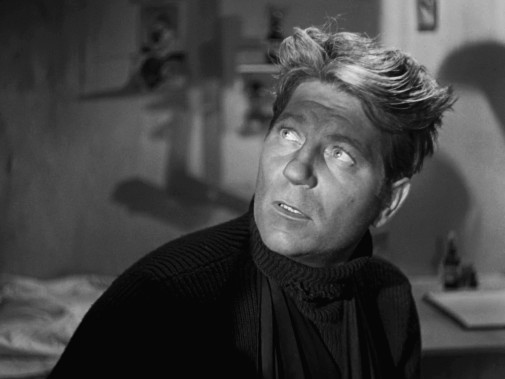
The Almost There series continues its exploration of the Criterion Channel's May programming. It's time to shine a light on Jean Gabin, currently celebrated in a 10-film collection named "France's Everyman". From 1936's The Lower Depths to 1963's Any Number Can Win, this tenfold serves as a sample of the Gallic actor's extensive career, dramatic prowess, and on-screen persona. Gruff and disaffected, with a cynic's soul and a mischievous twinkle in the eye, Gabin came to embody the French working classes in a myriad of roles from romantic heroes through charismatic scoundrels. Even before the Nouvelle Vague rocked the foundations of France's film industry, the actor had already become something bigger than life. Gabin turned from man into symbol, the personification of his nation's cinema. No wonder he never found a home in Hollywood despite a 1940s detour. Maybe he was just too French!
Still, American audiences embraced Gabin's movies. In 1938, Jean Renoir's Grand Illusion made Oscar history and brought the actor close to a nomination…
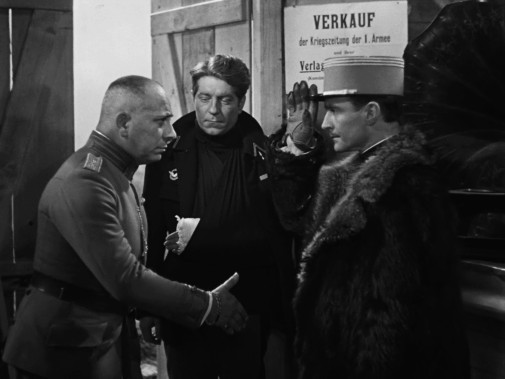
Made just a few years before the dawn of another, even deadlier, global conflict, Grand Illusion looks back at World War I, considering a POW camp as a microcosm of Europe's class hierarchies. Under a tenet of humanism, Renoir elaborates a poetic portrayal that vibrates with political fervor. Indeed, while contemporary scholars tend to look at the director's early work through a formalistic prism, considering how he shot space and his restless moving camera, one can't overstate how unashamedly militant Renoir's cinema could be.
Though not as lacerating in its class analysis as his later Rules of the Game, Grand Illusion still exemplifies the work of an artist for whom aesthetic sophistication and activist fervor were necessarily entwined. Naturally, the flick was banned in fascist Italy and Nazi Germany, though it found great popularity on the other side of the Atlantic. Supposedly, Roosevelt was a fan. And yet, Renoir is remarkably opposed to black-and-white morality, emphatically extending empathy towards France's enemies. Sure, some characters are shown in a worse light, but even they avoid flat vilification.
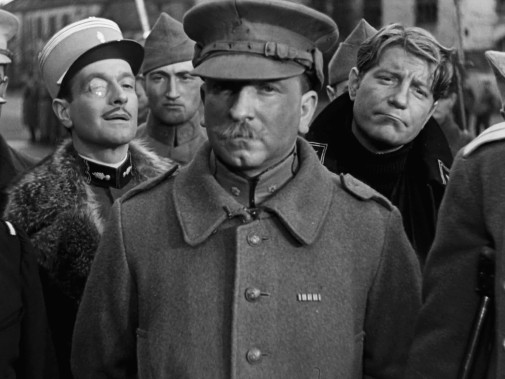
The director's famously roving camera finds complexity wherever it looks, articulating a fervent anti-war sentiment through socially-aware dramaturgy. A brilliant text is vital for the success of such a project, but perhaps even more crucial is a cast capable of bringing it to life. In that arena, Renoir is triumphant, working with many actors who he was already familiar with and could trust, as well as some new faces. Pierre Fresnay plays Captain de Boëldieu, a disdainful aristocrat who exemplifies his class's sense of noble superiority. Marcel Dalio is Rosenthal, a kind man of wealthy Jewish lineage who must confront his companions' anti-Semitic prejudice.
The showiest role belongs to Erich von Stroheim, who plays Captain von Rauffenstein as a force of archetypical Teutonic authority. His connection with Fresnay's Boëldieu is one of the picture's most curious bonds, showing how one's socioeconomic status can mean more than nationality, even in times of war. And yet, none of these men are first-billed, nor are they the subject of this write-up. Instead, Grand Illusion's true star embodies a character of less lofty origins, underlining how Renoir's social tapestry centers on the working-class man.
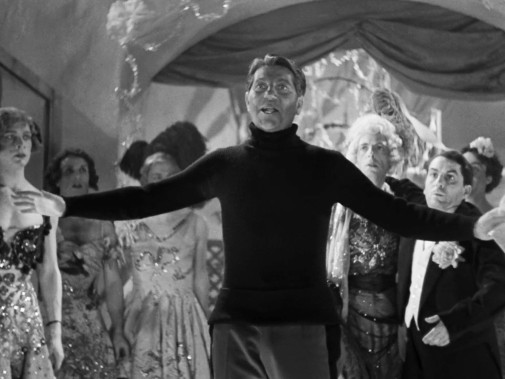
For this part, there was no better face than that of Jean Gabin. The actor, long associated with on-screen depictions of the lower depths of French society, plays Lieutenant Maréchal as a no-nonsense Breton, good-humored and lackadaisical even when considering his war wounds. In manner, speech, and many other factors, the character exists as a counterpoint to his higher-born fellow men. Early on, one gets the sense that Maréchal has learned how to move among those men, within the inter-class spaces made possible in wartime, by wearing his uneducated proletarianism with pride.
Unlike the man behind the camera, Gabin's characterization asserts the nonsensical nature of class distinction through relatively passive action. Maréchal is an individualist individual whose actor repudiates whatever symbolic readings one might want to project unto him. Sure, he's part of a class narrative, but he's much more than a mere representative of social strata. Moreover, Jean Gabin was a movie star in the most classic sense, modulating a constant persona throughout his many roles rather than taking part in chameleonic self-effacement.
In other words, despite the actor's portentous legacy, it's impossible for any Jean Gabin character to be fully diluted or abstracted, made more idea than a person. They are always, first and foremost, another permutation of the thespian's fixed identity. That's not to say that Gabin was always playing himself or that there would be no merit if it were the case. As an example of his actorly merits, consider how Maréchal's spirit is gradually broken by his stay in the picture's first POW camp. His ruddy-faced nonchalance gets eroded by time, each escape attempt earning worse punishment.
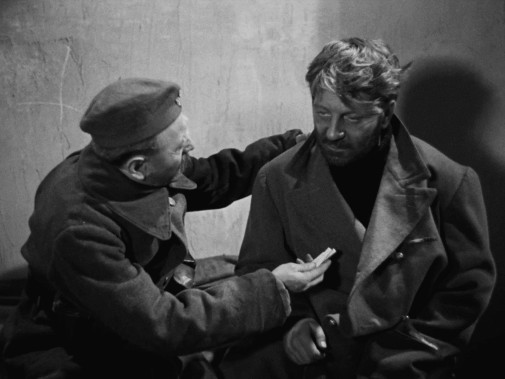
His demeanor exudes mental fatigue when we see him coming out of solitary confinement. Those pale eyes shine with unshed tears, trying to keep a stoic façade while his spirit sings a song of relief. When faced with his comrades' brotherly support, the ruddy-faced actor showcases great tenderness, gruff gratitude, delicate and beautiful. Later, when the French crew is moved to a new prison, Gabin suggests newfound tensions without overplaying his hand. Relocated into a castle where Boëldieu often seems closer to the captors than his compatriots, Maréchal's defenses are upped, his sense of security rankled.
Since Renoir privileges collective compositions over romantic close-up, Gabin must work out these subtle developments through the ways he shares the stage with costars, how his body moves in the military uniform, and how he recedes into the background and sometimes resists it. Not that Grand Illusion is an exercise in alienating distance. Renoir knows how to vary his strategies, and as if to reward his leading man's team spirit, there are some gorgeous closer shots where Gabin's rough good looks can truly shine.
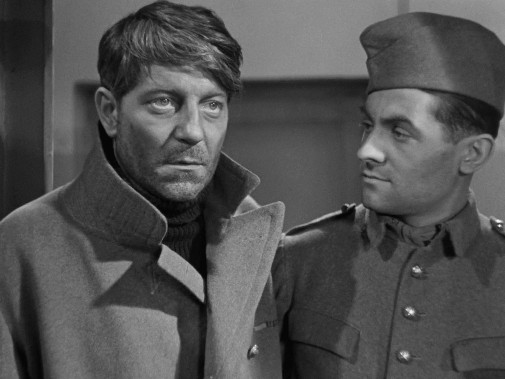
These images support and illuminate Maréchal's unspoken vulnerabilities, dreams of freedom and hope everlasting. They are critical as the story moves into its final act, once the Lieutenant manages to escape his captors alongside Rosenthal. After initial squabbles, both men remain together and take refuge in a German farmhouse. As Maréchal finds love in this new abode, falling for Dita Parlo's widowed farmwife, cynicism gives way to romance. Regardless, Gabin never abandons the precept of restraint, maintaining a tight leash on his capacity for emotional demonstration. Until the very end, running from enemy fire, the actor delivers a subtle performance, as disciplined as the camera's careful choreography.
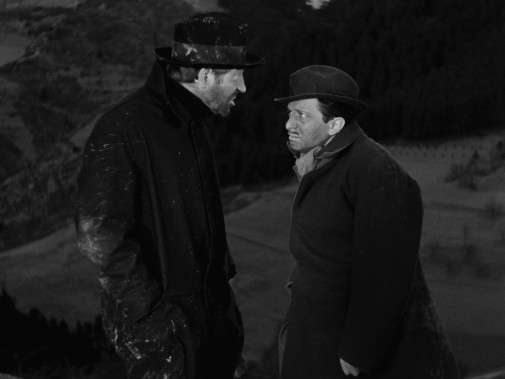
Grand Illusion became the first non-English-language film to score a Best Picture Oscar nomination. However, despite critical acclaim and an NBR prize for all its principal players, that was the only nod it secured. Considering his international stardom and leading role, it's fair to assume Jean Gabin came closest to Oscar glory in the Best Actor category. In the end, though, the Academy chose to nominate James Cagney in Angels with Dirty Faces, Charles Boyer in Algiers (coincidentally, an American remake of the Gabin-led Pépé Le Moko), Robert Donat in The Citadel, Leslie Howard in Pygmalion, and Spencer Tracy in Boys Town. The latter won for the second year in a row, becoming the first man to achieve that feat. Tom Hanks would be the second. As for Jean Gabin, he was never nominated for a single Oscar.
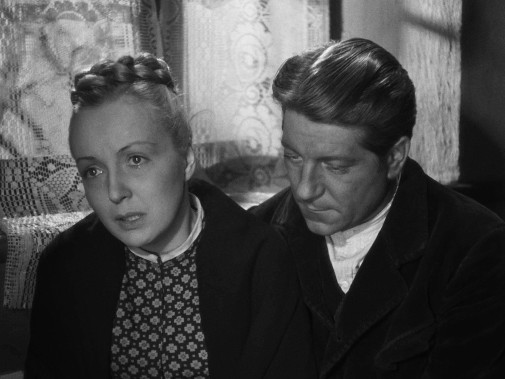
Grand Illusion is streaming on MUBI and the Criterion Channel. You can also rent it on most platforms.



Reader Comments (4)
It's been a while since I've seen Grand illusion but it's Renoir so well worth a further watch. Gabin is great, and I'm not too familiar with that Best Actor line-up - I've only seen Cagney and Boyer. Boyer, an actor I very much like, is good in Algiers (Gene Lockhart in the same film is outstanding) but Cagney is indelible in Angels with Dirty Faces.
A true masterpiece in cinema. Definitely one of the first films by Renoir that I had ever seen and it still holds up. Jean Gabin... now that was an actor's actor.
Another fun Gabin film on the Criterion Channel is MOON TIDE, with Ida Lupino. His first English language performance, I think. A noirish romp where he plays a scamp of a shore worker who may have killed a beloved other scamp in a drunken stupor. The visuals are stunning, with the drunken nightmare designed by Salvador Dali. Great, sharply drawn characters (with names like Bobo, Tiny, Nutsy, Pop...), great sets, etc. Check it out.
Another fun Gabin film on the Criterion Channel is MOON TIDE, with Ida Lupino. His first English language performance, I think. A noirish romp where he plays a scamp of a shore worker who may have killed a beloved other scamp in a drunken stupor. The visuals are stunning, with the drunken nightmare designed by Salvador Dali. Great, sharply drawn characters (with names like Bobo, Tiny, Nutsy, Pop...), great sets, etc. Check it out.